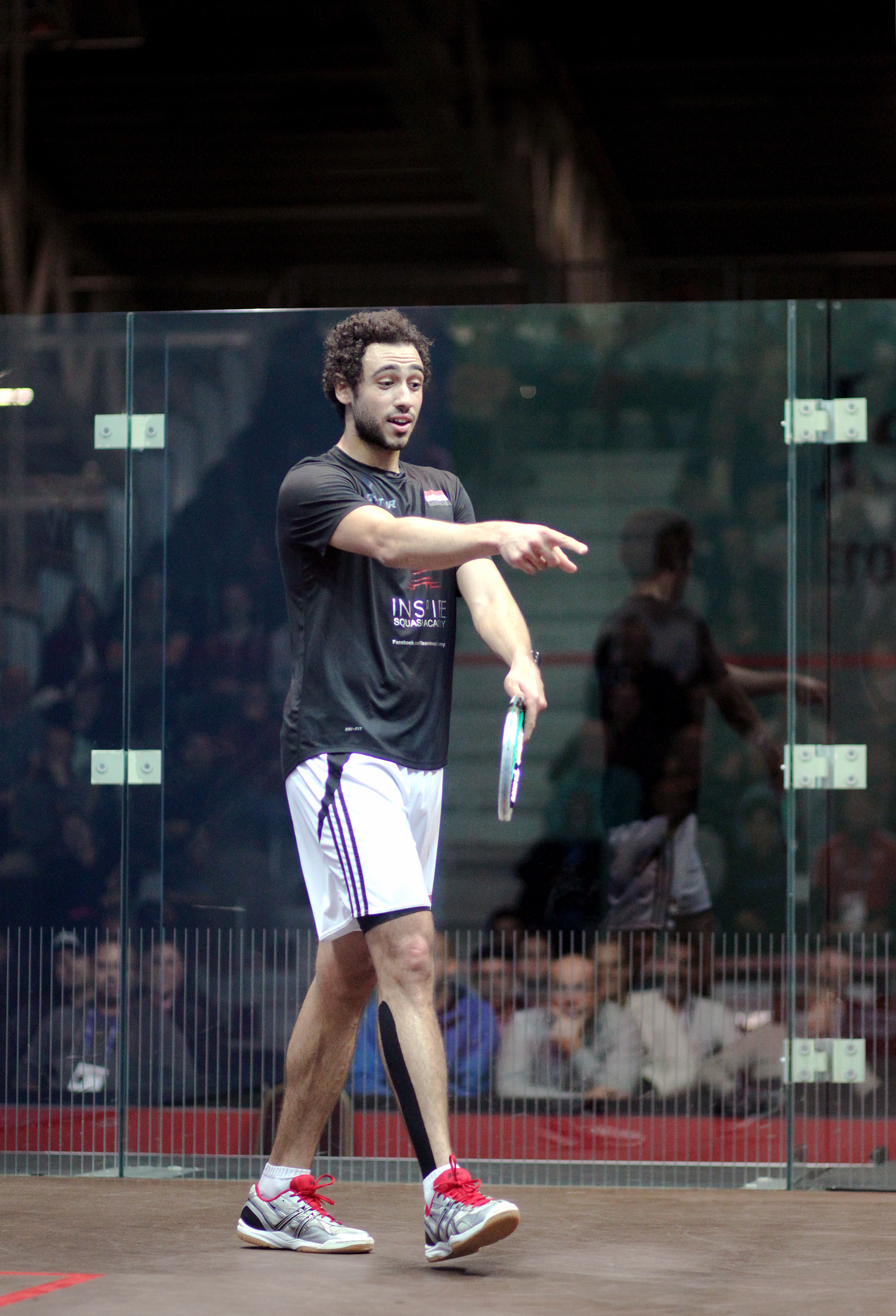
By Richard Millman
Competitive squash is a kaleidoscope of variables—technical, physical, tactical and emotional. The complexities of dealing with these areas are a challenge for all of us who profess to be avid participants in our game.
The glue that keeps mind body and soul together in this venture, provided that we have trained, practiced and generally prepared, is the way in which we talk to ourselves.
Sometimes known as ‘self-speak,’ those of you that have followed my writings will know that I believe very strongly in positive ‘self-speak.’
We are, after all, on a journey; and journeys require forward momentum to become journeys of note that achieve great distance.
Establishing that one has failed does nothing for the journey and actually prevents progress. Positive ‘self-speak’ is about enabling the journeyman by giving the traveler a plan or map for forward progress.
In squash, the Crown Jewels of ‘self-speak’ are those little phrases, or even one word, that promote the continuation of the journey, even in difficult or stressful circumstances.
Mantras, as these little gems are known, are defined by Wikipedia as a “sacred utterance, numinous sounds, or a syllable, word, phoneme, or a group of words believed by some to have psychological and spiritual power.”
This has certainly been the case for me.
Over the years I have come to realize that my own personal mantras have not only helped me to produce by best performances but have made me feel good about my attempts to perform.
It is important to recognize that producing the best that one can does not guarantee a short term outcome, but it does help us to maximize our growth as performers over the long haul and will considerably improve our ability to attain the best possible result that our skill, experience, physical fitness, cunning and emotional control are capable of producing.
I use two particular mantras.
The first I tend to use at the beginning of each point. It is very simple. As I go through my personal service or return of service ritual, I repeat the word “focus” two or three times.
The effect of this is to help me gather all of my resources in preparation to commit myself utterly and completely to the next rally.
The other one I use both when I am on the cusp of defeat and of victory. It is a phrase I have developed over many years that I find helps me to keep focused on performance and not to be distracted by fears and hopes I may have about the outcome of the particular match I am involved in. It is also very effective during intense physical training when pain and fears of my inability to complete a task are on the verge of distracting or dissuading me.
The phrase, which I repeat to myself as I stand preparing to confront a great task,is the following: “Good work brings its own rewards.”
By saying this I find that I am able to produce my maximum level of achievement, even in situations of great stress. It helps me to clear my mind and step forward on the journey, knowing that I am setting out with honest intentions of doing my best.
I have no clue as to what will happen. I simply believe that by doing good work, I will get the best outcome that I am capable of.
I may lose that particular match at that particular moment. But even if I do, I know that by doing good work I have maximized my progress toward my ultimate destination—whatever that is—and that I have invested in my own success, whenever that success comes to fruition.
So remember, the journey is precious. Each of us only has one journey, and the way we deal with each step along the way will ultimately determine how much progress we will make. Worrying about being successful will not make us successful. But a mantra that helps us to progress unfettered by fear will produce consistent results and avoid the pitfalls of distraction and consequent halts along the way.
Have you found your perfect mantra? I recommend you do and, in doing so, release your potential to progress.
Remember: “Good work brings its own rewards.”





